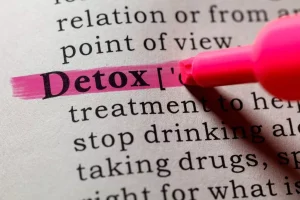
At this stage, free will is not involved, because the sufferer has lost the power of choice over alcohol. The important thing is to face the facts of one’s illness and to take advantage of the help that is available. Program will work for all alcoholics who are sincere in their efforts to stop drinking; it usually will not work for those not absolutely certain that they want to stop.
Options for Treatment
Continuing care for alcoholism keeps recovering individuals in touch with counselors who can help them work out any emotional issues that could potentially trigger a relapse. Cognitive behavioral therapy, medications to help correct chemical imbalances in the brain, and peer-support networks have all been shown to be useful for this purpose. Yet the condition can be effectively managed by teaching a person strategies that can help them cope with stress and environmental factors that contribute to their alcohol abuse. However, if a person is willing to get the treatment they need at an alcohol rehabilitation center, they have a much greater chance of becoming sober than they would if they attempt the process alone. This vicious cycle is the reason that alcoholism is considered to be a disease—it changes the body’s response to it, the brain reactions and structure, and eventually, a person’s behavior.

Find more top doctors on
Then, when they notice the depressant properties that the substance has on the body, such as deep relaxation and euphoria, they begin to drink more often. Usually, this is due to the way that they started out having a few drinks because they were feeling depressed or anxious over a situation. Due to the relatively small sample size, the Bollen-Stine bootstrapping method for 5000 samples resamples, and 95% interval confidence [101].
AA Video for Legal and Corrections Professionals

Many years ago, those who struggled with alcohol addiction or dependency were considered to be people with weak morals who were missing the strong characteristics needed can alcoholism be cured to overcome their struggles. Members work together to help the alcoholic who still suffers. There are many opportunities to participate in a variety of ways.
Ideally, health care providers will one day be able to identify which AUD treatment is most effective for each person. The National Institute on Alcohol Abuse and Alcoholism (NIAAA) is supporting research to identify genetic, behavioral, and other factors that can predict how well someone will respond to a particular treatment. These advances could optimize how treatment decisions are made in the future.
- Alcoholics Anonymous encourages meeting attendees to “take what you can use and leave the rest.” Anyone who wants to change their behavior towards alcohol is encouraged to have an open mind and try a meeting.
- Future research should take into consideration religious facets of functioning, which are important predictors of participants’ meaning in life and hope.
- Following detox, a physician might also prescribe a medication to discourage alcohol use.
- The Alcoholics Anonymous Involvement Scale (AAIS) was used to assess lifetime AA attendance [88].
- The obtained results confirmed that involvement in AA is indirectly related to subjective well-being via existential well-being, consisting of meaning in life and hope.
According to the NIAAA, around 700,000 people receive some form of alcoholism treatment every week in the United States. The success rate fluctuates, although it is believed that nearly 50 percent of people who receive treatment for alcoholism will never touch a drink again. A further 18 percent will only drink alcohol in moderation.
- Health care providers diagnose AUD when a person has two or more of the symptoms listed below.
- A conceptual model of subjective well-being was tested as an indirect result of AA involvement through an existential well-being latent variable consisting of meaning in life and hope.
- This vicious cycle is the reason that alcoholism is considered to be a disease—it changes the body’s response to it, the brain reactions and structure, and eventually, a person’s behavior.
1. Involvement in AA and Recovery from Alcohol Addiction
If you’re worried that someone you know has an alcohol addiction, it’s best to approach them in a supportive way. This could push them away and make them more resistant to your help. As an addiction tends to get worse over time, it’s important to look for early warning signs. If identified and treated early, someone with an alcohol addiction may be able to avoid major consequences of the disease.
Medications

The important thing is to remain engaged in whatever method you choose. Below are samples of e-health tools developed with NIAAA funding. Each of these fee-based tools has a research base that shows its potential to help people cut down or quit drinking. Caring for a person who has problems with alcohol can be very stressful. It is important that as you try to help your loved one, you also find a way to take care of yourself. It may help to seek support from others, including friends, family, community, and support groups.

Professional Associations of Medical and Nonmedical Addiction Specialists
- The newer types of these medications work by offsetting changes in the brain caused by AUD.
- Psychological, genetic, and behavioral factors can all contribute to having the disease.
- According to Neff and MacMaster [111], social learning among Alcoholics Anonymous participants facilitates a “spiritual transformation” that influences their behavioural change.
- You doctor also can refer you to a treatment center or experts who can help.
As a result, overcoming guilt and negative self-talk is vital. Some people may feel so “broken” that they almost feel they can no longer experience joy and confidence, or have healthy relationships again. So far, there’s no consensus on the medical definition of recovery in alcohol treatment literature.
Your provider may also be able to suggest an online self-guided program. Such e-health tools have been shown to help people overcome alcohol problems. Your health care provider can help you evaluate the pros and cons of each treatment setting. “Is there a cure for alcoholism” is a common question among many, including those dealing with addiction as well as loved ones and friends who might be trying to help someone with the disease. Though there may be no easy “cure” for alcoholism, or alcohol use disorder, the condition is treatable. Ongoing treatment and continued recovery efforts can be helpful in successfully managing alcoholism and preventing relapse in the long term.
